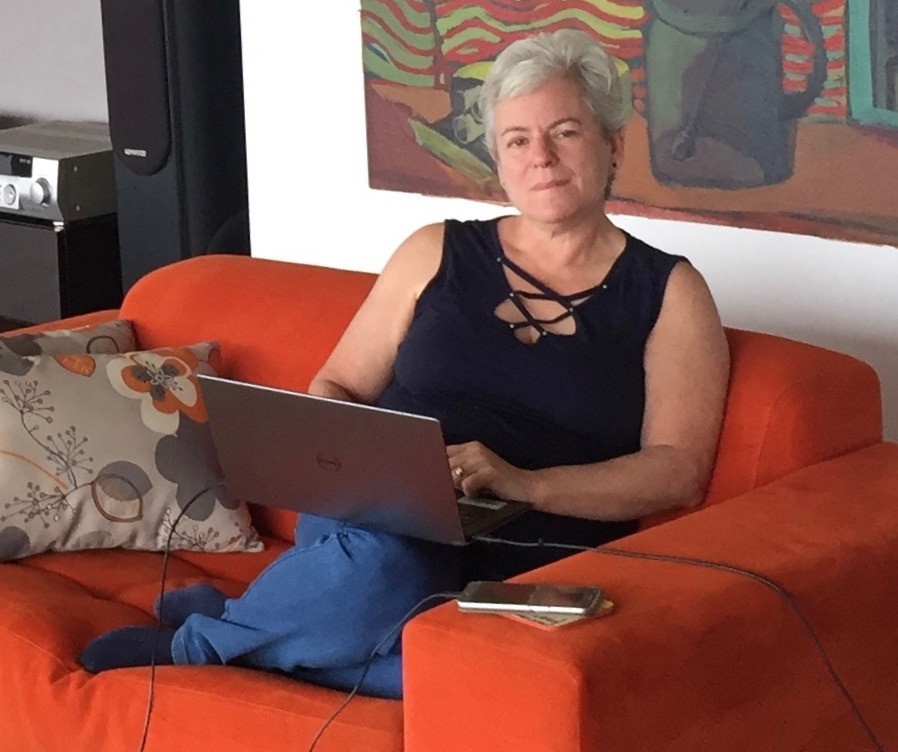
In a time long before Covid trapped us all in our homes I was already spending far too many hours in front of a laptop researching my grandfather’s early life in the hopes of writing a book about it. Nearly two years ago I wrote about the often frustrating, sometimes exhilarating process of researching his past. Eventually I got to the point where I reached two conclusions:
- It was time to force myself to actually start writing the damned book. I had to learn to simply flag the bits that needed further research and keep on writing. Sadly, that means that every couple of paragraphs I seem to have a flag: were the streets cobbled or mud? How long did one have to apprentice as a tinsmith before being fully qualified? How many versts from Igumen to Minsk? (And how many miles/kilometres is a verst?) What would have been exported on a ship sailing from Yokohama to Vancouver in 1919? It never ends!
- The book would have to be written as historical fiction rather than memoir or biography, because there were too many big gaps that simply couldn’t be answered. There is no way I’ll ever be able to know, for example, exactly what my grandfather did in Russia from 1917 – 1919. He was apparently vague when he discussed it with his children. On the plus side, I’ve always loved reading good historical fiction, and it is liberating to write it as fiction. You can have so much fun imagining what might have happened. I’m still determined that it will be historically accurate, but chunks of his personal story will be invented based on what is plausible, given the time and place.
Yokohama Fire
That said, I do keep popping back into the research, and the other day I made a thrilling discovery. The family story was that my grandfather had stowed away on a ship from Yokohama to Vancouver after a fire in Yokohama that was so big that he assumed it would have been reported worldwide. That, he figured, would give him the excuse he needed for why he didn’t have any official papers to prove who he was: he could say they’d been burned in the fire. But when I researched the fire I kept reading that it had been in September of 1923, as a result of a massive earthquake. Yet I knew his first child had been born in Canada in January of 1924, so the dates simply didn’t add up.
While poring over some old newspapers recently I discovered that there had been a massive fire in Yokohama on April 28, 1919, shortly before my grandfather stowed away. Because the 1923 event had been so much bigger, wiping out parts of Tokyo as well as Yokohama, the news stories about it overwhelm Google. But the 1919 fire was a big deal in its time, and was indeed written about worldwide.
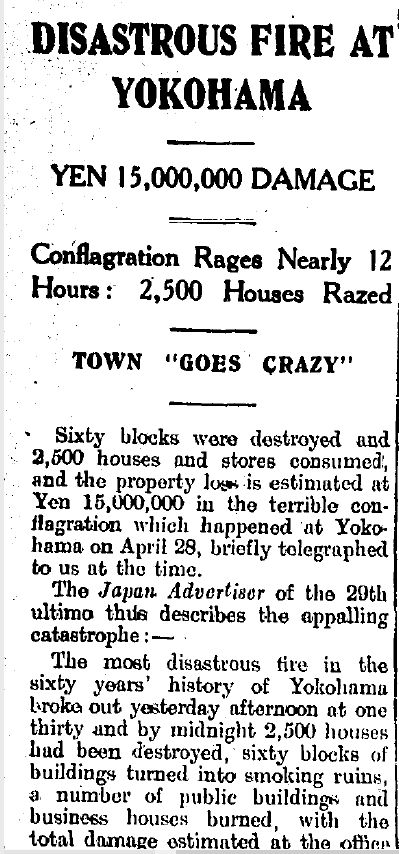
Now if only I could find more of the other things I’ve been hunting for, like letters or diaries from others who, like my grandfather, returned to Russia to fight for the Bolsheviks in 1917. I guess, given how badly things went for them, I shouldn’t be surprised that nothing seems to remain. Every scrap of flammable material was burned for warmth during the cold and hungry days of 1918 and 1919. Time to put my fiction hat back on.
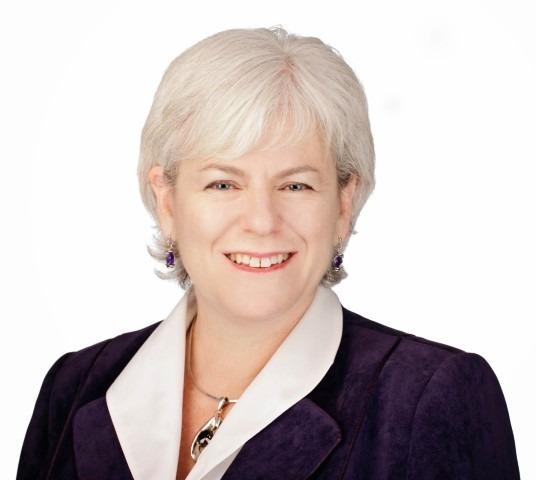
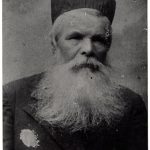
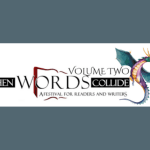

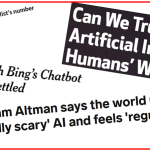
[…] author writing historical fiction about Russian radicals, although her era is set a century before Red Rules, the book I’m […]
[…] with people relative to my business (e.g. #cx #custserv) and my more recent profession as an aspiring writer of historical fiction. It was also where I’d go when there was breaking news and to get help from customer service […]
[…] As I found more documents, and put the trail together, I concluded that either the story about coming after the earthquake was wrong or my uncle was not fathered by my grandfather. The earthquake took place in September 1923, and my uncle was born just four months later, in January 1924. (UPDATE: I eventually got to the bottom of that story. Read it here.) […]